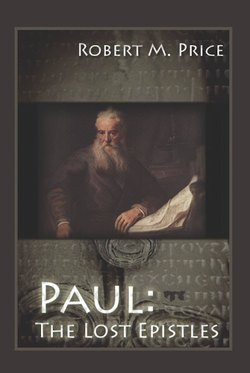Paul: The Lost Epistles

Реклама. ООО «ЛитРес», ИНН: 7719571260.
Оглавление
Robert M. Price. Paul: The Lost Epistles
Introduction
A Letter from the Iconian Church to Paul
The Epistle of Paul to the Iconians
The Epistle of Paul to the Beroeans
The Epistle of Paul to the Antiochenes
The Epistle of Paul to the Alexandrians
The Epistle of Paul to Caesar's Household
The Epistle of Paul to the Cenchreans
The Epistle of Paul to the Hierapolitans
The Letter of Paul to Izates the King
The Epistle of Paul to the Milesians
The Letter of Paul to Eutychus
The Epistle of Paul to the Cilicians
The Letter of Paul to Luke the Physician
The Letter of Paul to Thecla
The Great Apocalypse of Paul
Отрывок из книги
Hidden Treasures
As a Bible devotee, I must admit that for many years I have thought how great it would be if someone were to discover a cache of new Pauline epistles, even one or two. It was not any particular dissatisfaction with the epistles we have in the biblical canon that prompted these daydreams. On the contrary: I loved them so much that I naturally wanted more. Call me a scripture glutton. Is that a sin? How wonderful when, as rarely, such a dream actually comes true. I remember the thrill I experienced when I first beheld the newly-published Gospel according to Thomas. I never expected to feel that thrill again, but then, here it is.
.....
Even some liberal theologians flinch at suggestions that certain letters are not really Paul's because their model of biblical inspiration and authority is based on the belief that major biblical writers were "religious geniuses," and that their writings are inspired in much the same way those of playwrights and poets are. They do have authority as those who know their subject, the subject in this case being God and religious experience. Reading Paul for them would be like reading Thomas Merton or Meister Eckhart. But then what if this or that epistle can be shown not to stem from the great Paul after all?
Of course the next step is to shift ground, to say that a particular writing is as "authoritative" as it is going to get so long as it strikes some chord in the reader, makes us think of something we wouldn't have otherwise, challenges us in some way. Whoever may have written it was a genius, or at least he was having a good day. In any case, though, authority is no longer seen as a matter of simply taking orders and believing unprovable things because the writer is supposed to have had a hot-line to heaven. Some years ago, University of Chicago New Testament scholar Robin Scroggs announced that we have reached this stage. It is our prerogative to grant authority to whichever biblical writings which we hear and assent to. And not just because we already thought for ourselves whatever they tell us, as if we were corroborating them, like a professor giving a student a good mark on a paper. No, the biblical writings tell us new things or, like the Johannine Paraclete, bring things to our remembrance when convenience and self-interest might have led us to forget them. So when we read them, they strike a deep chord, they ring true. We needn't simply swallow whatever they say, and when they say something that fails to ring true, we ought to discard it. So we are left where Paul left the Thessalonians, responsible to test all spiritual utterances and to decide for ourselves which are worth heeding (1 Thessalonians 5:19-22).
.....